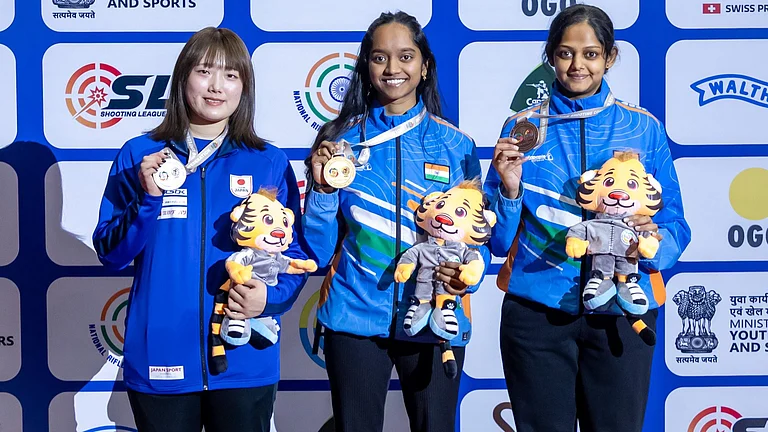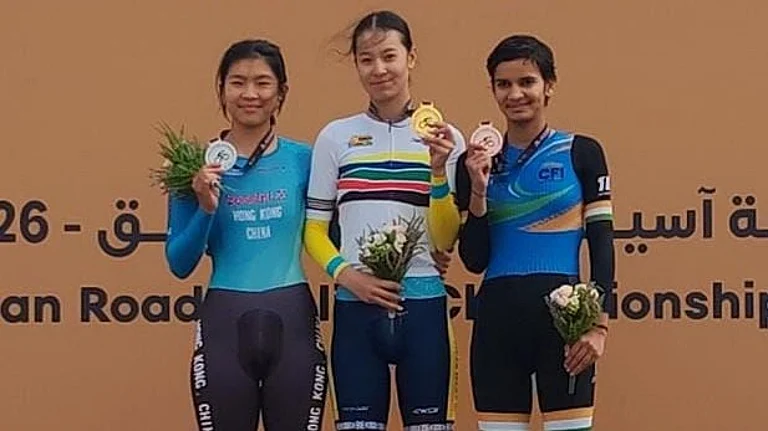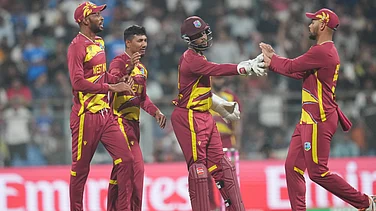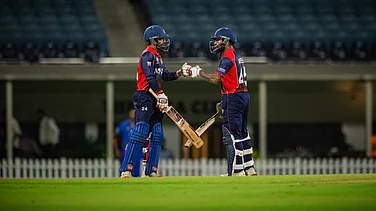As 21-year-old Aman Sehrawat faced his Puerto Rican opponent in the wrestling arena, sweating profusely, out of breath and bleeding from a gash on his nose, nothing could stop him from scripting history.
Clinching a bronze at the Paris Olympics 2024, the Haryana wrestler became the youngest-ever Olympic medalist for India and secured the country’s first wrestling medal of the Games, following Vinesh Phogat’s unexpected disqualification from the gold medal match. By recording a stellar 13-5 victory in the 57kg freestyle wrestling category, Sehrawat defeated three-time Pan American medalist Darian Cruz and continued India’s wrestling medal streak at the Olympics.
The first Indian wrestler to win an Olympic medal was KD Jadhav, who earned bronze at Helsinki 1952. India’s next wrestling triumph came 56 years later with Sushil Kumar’s bronze at Beijing 2008. Since then, India has won at least one wrestling medal in each of the last five Olympics. Five of the six medalists, including Sehrawat, have come from renowned Chhatrasal Akhada.
In the 2012 London Olympics, Sushil Kumar won silver and Yogeshwar Dutt claimed bronze. The 2016 Rio Olympics saw Sakshi Malik take bronze, the only wrestler not from Chhatrasal. At the Tokyo Olympics, Ravi Kumar Dahiya won silver and Bajrang Punia took bronze.
With pictures of Olympic greats who became full-grown wrestlers at the akhada adorning the walls, the stadium motivates young wrestlers to aim high. “My aim is also to win an Olympic medal. If you are from Chhatrasal, you learn from a young age that nothing less than an Olympic medal will do,” Aman Sehrawat had told The Indian Express in April last year.
Chhatrasaal Akhada was founded by former wrestler Satpal Singh, a distinguished competitor who represented India at the Munich 1972 and Moscow 1980 Olympics and won several medals at the Asian Games and Commonwealth Games. Satpal Singh, along with his compatriot Virender Singh, opened the akhada at Delhi’s Chhatrasal Stadium in 1988 with a vision to elevate Indian wrestling.
The akhada gained prominence when Sushil Kumar won a medal at the 2008 Olympics, winning a medal for India in 42 years. Before Sushil’s achievement, the akhada had around 90 students; by the time of his success, that number had nearly tripled.
When it first started, the akhada didn't even have a mat for training. However, over the years, it has greatly improved and become one of the best stadiums with high-class facilities. Former students and senior wrestlers have returned to donate and support the facility.
Training at Chhatrasaal Akhada begins early, with sessions starting around 4:30 am. The rigorous regime includes warming-up exercises, sprinting, and relaxation periods, followed by practice on the mats. Extreme training methods, including rope climbing, are employed to build strength and endurance. This disciplined approach has helped produce some of India's finest wrestlers.
Outlook spoke to Aman’s coach Lalit Kumar at Chhatrasal stadium following his win on Friday.
"It's pure celebration here at Chhatrasal Stadium," Lalit Kumar told Outlook.
He added, "The wrestlers are dancing to the dhol, celebrating this incredible victory. A decade of hard work has finally paid off. We're overjoyed and can't wait to welcome Aman home on the 13th. I've been training him since he was just 10 years old. He's overcome a lot, and he really deserves this."




























